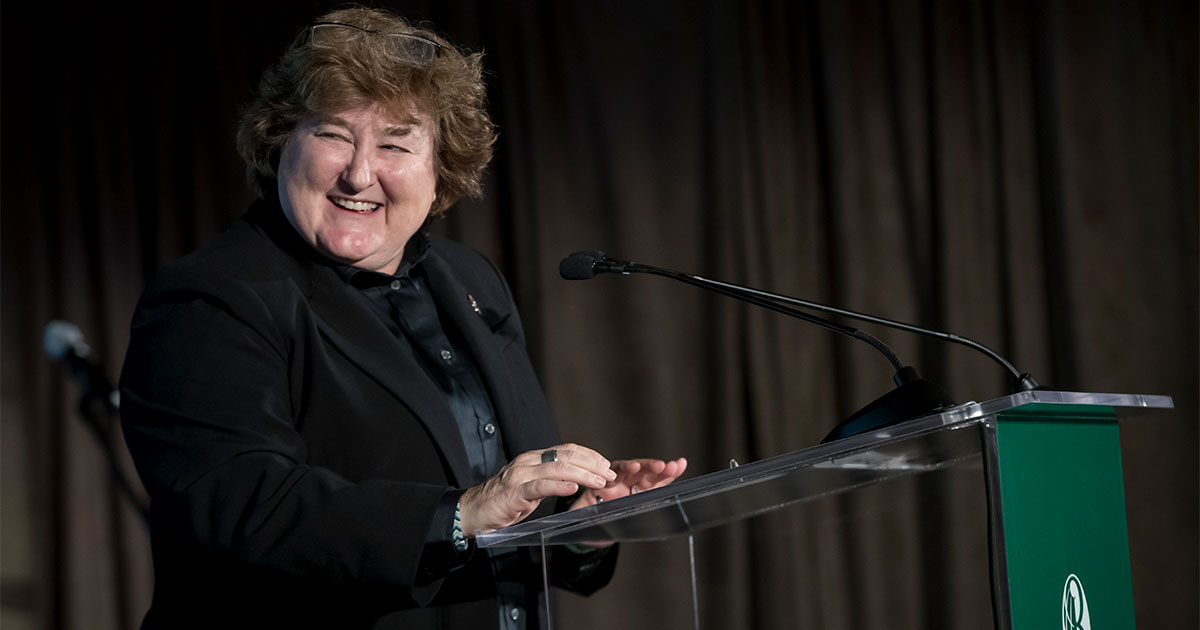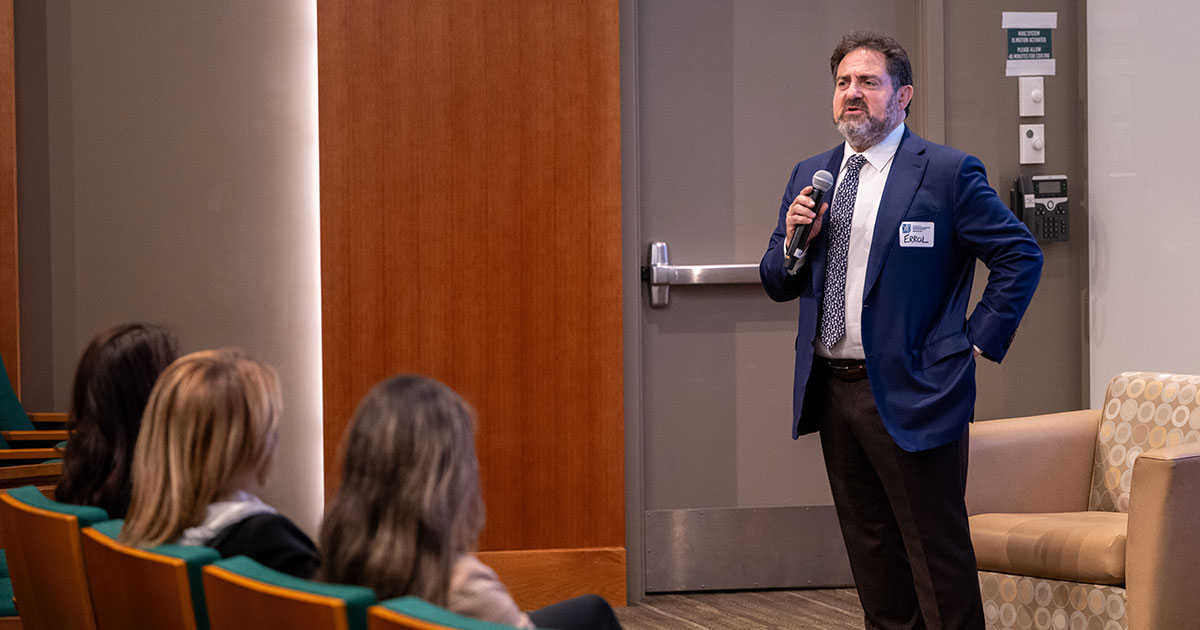Can the Financial Markets Make the World a Better Place?

Erika Karp calls it the myth that refuses to die.
Karp is the CEO and founder of Cornerstone Capital Group. The persistent myth she refers to is the idea that an investor can’t achieve competitive returns while simultaneously making a social impact. “That myth is not dead yet, but it should be,” she says.
With solid research and an earnest message filled with heart and passion, Karp is dispelling this false belief through her work with Cornerstone. The investment firm is rooted in the conviction that socially conscious investing is not only effective but also badly needed in the world today and can help make for a future that’s more sustainable and inclusive.
“I had a sense of urgency to move the capital markets in the direction of social impact,” says Karp, who founded Cornerstone in 2013.
In September, Babson’s Lewis Institute for Social Innovation awarded Karp the Centennial Social Innovator Award. “Social Innovator Awards recognize individuals who have set in motion transformative change,” said Cheryl Kiser, the institute’s executive director, as she presented the honor during the College’s Centennial Celebration. “They change mindsets, create new frameworks, and influence beliefs, all in service to creating a more just and sustainable world. Erika Karp has done just that.”
A Force for Good
With offices in New York City and Denver, Cornerstone considers environmental, social, and governance factors (known collectively by the shorthand ESG) when evaluating investments. It oversees $1.1 billion in assets from the families, foundations, and individuals who are clients. “We believe in a world where financial markets are a force for good,” reads its website.
That’s a bold message, and to sell it, Karp relies on two key tools. The first is her background. Karp is not a Wall Street outsider, say a philanthropist or political partisan, who is advocating for change. Prior to founding Cornerstone, she was the managing director and head of global sector research at UBS Investment Bank.
That sort of experience makes her not so easy to ignore. “There is a financial acumen that has to be brought, and you need to be compelling,” she says. “We have serious Wall Street credentials.”
Direct and Deeply Felt
The other tool she brings? Research that is not only comprehensive but also visceral. It connects with people. It’s not simply lines of data on a page.
Cornerstone uses a measurement resource it created, the Access Impact Framework, to show how well its clients’ portfolios align with the Sustainable Development Goals of the United Nations. Those 17 goals, which cover a range of issues from health to hunger to poverty, may seem hard to quantify at first from an investment standpoint.
“If you are looking at the U.N. goals and want to make them investable, you have to really have a framework that allows for that,” Karp says. “Our research offers that framework.”
Cornerstone’s framework uses an easy-to-understand heat map, with colors ranging from light to dark blue, to illustrate how well investments support those U.N. goals. “Her company purposely avoided using a numerical scale,” says Kiser, “because the heat map would reach people on a more direct, deeply felt, human level.”
Reaching investors on a human level is what Cornerstone aims to do. “If we can’t move people, we can’t move money,” Karp says.
A Growing Movement
For all of Cornerstone’s efforts, Karp knows that investing with social and sustainable considerations is far from universal. “The world is not there yet,” she says. “We have a lot of work to do.”
Still, the movement is growing, driven in part by the increasing alarm that climate change is causing. “We’re having this massive consciousness-raising moment in time,” Karp says. Eventually, she predicts that it won’t be seen as a unique or radical way to invest, that terms such “ESG investing” or “impact investing” won’t be used.
Instead, investing to make a social impact will be seen as the norm. “The jargon will probably go away over time,” she says. “We will be just talking about investing.”




